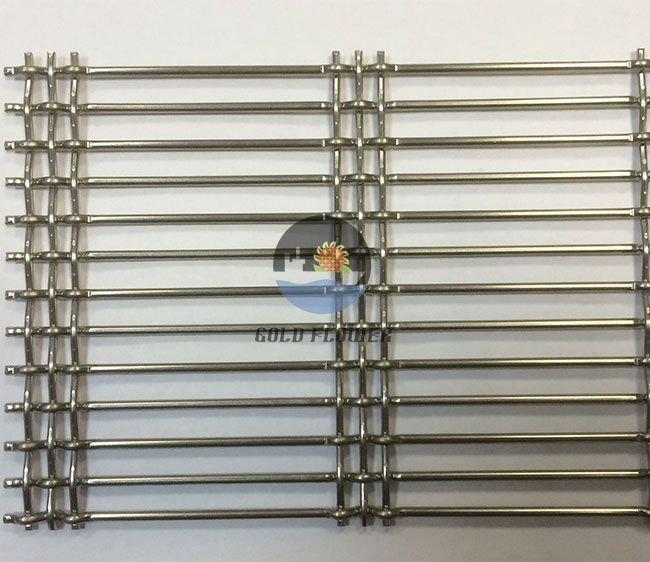Jul . 28, 2024 03:32 Back to list
High-Quality SS316 Stainless Steel Wire Mesh for Versatile Industrial Applications and Durable Construction
Stainless Steel 316 Wire Mesh A Comprehensive Overview
Wire mesh is an essential component in various industries, known for its durability, strength, and versatility. Among the different types of wire mesh available, stainless steel 316 wire mesh stands out for its exceptional properties, making it suitable for a range of applications, particularly in environments that demand corrosion resistance. This article provides an overview of stainless steel 316 wire mesh, exploring its features, applications, and benefits.
What is Stainless Steel 316 Wire Mesh?
Stainless steel 316 wire mesh is made from an alloy that contains chromium, nickel, and molybdenum, providing enhanced corrosion resistance compared to other stainless steel grades, such as 304. The addition of molybdenum is critical for improving resistance to pitting and crevice corrosion, especially in chloride-rich environments such as marine settings. This wire mesh is available in various sizes, mesh designs, and wire diameters to cater to specific requirements.
Key Features
1. Corrosion Resistance One of the predominant features of 316 stainless steel wire mesh is its outstanding resistance to corrosion. This makes it particularly advantageous in industries where exposure to harsh chemicals or salty environments is commonplace.
2. Durability 316 stainless steel is known for its high tensile strength and overall durability. The material can withstand harsh physical conditions, making it suitable for demanding applications.
3. Temperature Resistance Stainless steel 316 wire mesh can maintain its structural integrity even at high temperatures, making it ideal for applications that require heat resistance.
4. Flexibility The mesh can be easily manufactured into various shapes and sizes, allowing for customization depending on the specific needs of the users.
5. Aesthetic Appeal Apart from functionality, the sleek and polished finish of stainless steel 316 wire mesh adds an aesthetic value, making it popular in architectural applications.
wire mesh ss316

Applications
The versatility of stainless steel 316 wire mesh enables its use in numerous industries
1. Marine Applications Given its exceptional corrosion resistance, 316 wire mesh is widely employed in the marine industry for applications such as boat construction, fish farming, and marine safety barriers.
2. Food Processing In food processing facilities, 316 stainless steel mesh is favored for its non-corrosive properties and ease of cleaning, ensuring hygienic conditions for food handling and storage.
3. Chemical Industry The chemical industry often utilizes this type of wire mesh to manufacture filters, strainers, and separators that must endure corrosive substances without degrading.
4. Construction In construction, stainless steel 316 wire mesh serves as reinforcement material in concrete, providing added strength and durability, especially in environments prone to moisture.
5. Mining and Mineral Processing Stainless steel mesh is also vital in mining applications for sieving and separating minerals due to its robustness and resistance to corrosive elements.
Benefits
Using stainless steel 316 wire mesh provides numerous advantages. Its longevity and minimal maintenance requirements lead to cost savings over time, as users can avoid frequent replacements. Furthermore, its high strength-to-weight ratio permits the construction of lighter yet durable structures, promoting efficient designs. The versatility of this material means it can be tailored to fit specific operational needs, whether for industrial applications or aesthetic architectural features.
In conclusion, stainless steel 316 wire mesh is a superior choice for applications requiring strength, durability, and resistance to corrosion. Its comprehensive features make it a preferred material across multiple industries, from marine to food processing. By choosing 316 stainless steel wire mesh, businesses can ensure that they are investing in a product that not only meets their functional needs but also provides long-term reliability and performance.
share
-
CE Certified Woven Wire Mesh Filters | Premium Filtration Solutions
NewsAug.19,2025
-
High-Performance Particle Filters: Optimal Mediums & Applications
NewsAug.18,2025
-
Competitive Screen Mesh Price | 1/4", 1/8", 1/2" Wire Mesh Screens
NewsAug.17,2025
-
CE Certified 250 Micron SS Mesh: Precision & Durability
NewsAug.15,2025
-
CE Certified 250 Micron Stainless Steel Mesh - Durable & Precise
NewsAug.14,2025
-
Precision CE Certified 250 Micron Stainless Steel Mesh
NewsAug.13,2025

